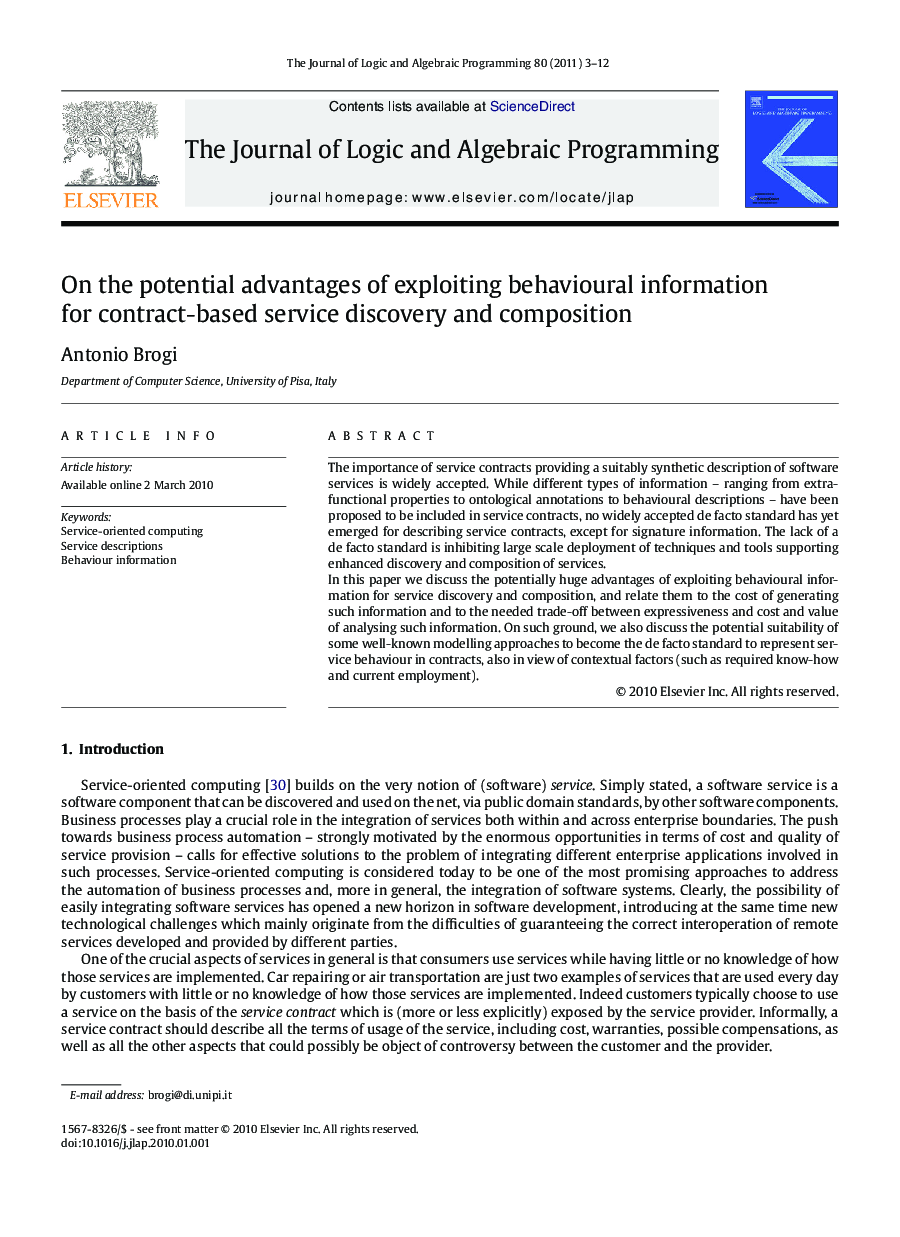| Article ID | Journal | Published Year | Pages | File Type |
|---|---|---|---|---|
| 432234 | The Journal of Logic and Algebraic Programming | 2011 | 10 Pages |
The importance of service contracts providing a suitably synthetic description of software services is widely accepted. While different types of information – ranging from extra-functional properties to ontological annotations to behavioural descriptions – have been proposed to be included in service contracts, no widely accepted de facto standard has yet emerged for describing service contracts, except for signature information. The lack of a de facto standard is inhibiting large scale deployment of techniques and tools supporting enhanced discovery and composition of services.In this paper we discuss the potentially huge advantages of exploiting behavioural information for service discovery and composition, and relate them to the cost of generating such information and to the needed trade-off between expressiveness and cost and value of analysing such information. On such ground, we also discuss the potential suitability of some well-known modelling approaches to become the de facto standard to represent service behaviour in contracts, also in view of contextual factors (such as required know-how and current employment).
